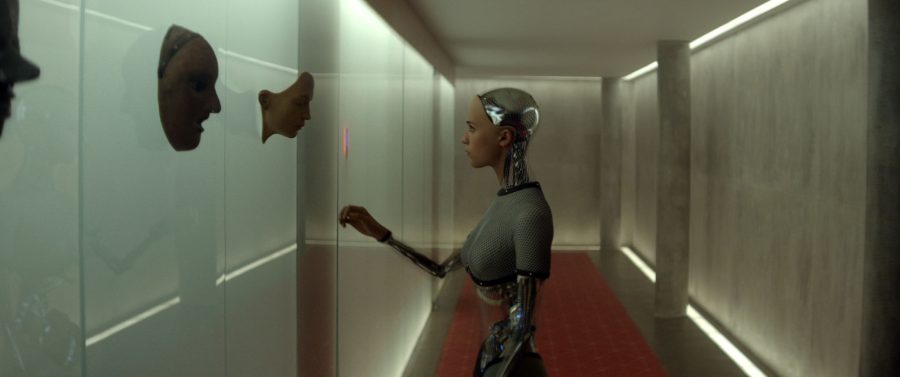“Ex Machina” is a science-fiction tale about a twenty-six-year-old coder who wins a contest at work and is flown by helicopter to a remote estate where he is to spend one week with the owner of the company he works for. Without knowing exactly why he is there, Caleb allows his fear and anxieties to give way to his curiosity, which peaks upon his arrival to the extravagant home and research facility of Nathan, the CEO of Blue Book—the world’s largest internet search engine.
The exclusivity and refined nature of Nathan’s lair contrasts starkly his casual demeanor. He assumes immediate companionship with Caleb, and the two seem to adopt puppet-puppeteer roles from the very beginning. But as the story develops, one can’t help but wonder: who is actually pulling the strings?
There is also a third entity who complicates the seemingly simple dynamic—an Artificial Intelligence (AI) named Ava. Caleb learns that he has been brought there to help Nathan evaluate Ava and determine whether or not she can pass the Turing Test—a test that assesses a machine’s ability to exhibit intelligent behavior comparable to that of a human.
Like most science-fiction stories, “Ex Machina” is also a critique on society. There is an obvious parallel between Blue Book and Google, and it is revealed that the wealth of information that was gathered—illegally—from the internet search engine became the software for the AIs. “Ex Machina” plays with, and even insinuates, the inevitability of the refinement of AIs like Ava, but it also cautions of the possible consequences and critiques the means of getting there. “Ex Machina” engages as much as it entertains and, like any great film, it also makes you think critically about your world and the world to come.

